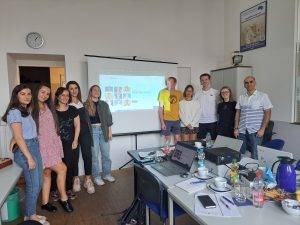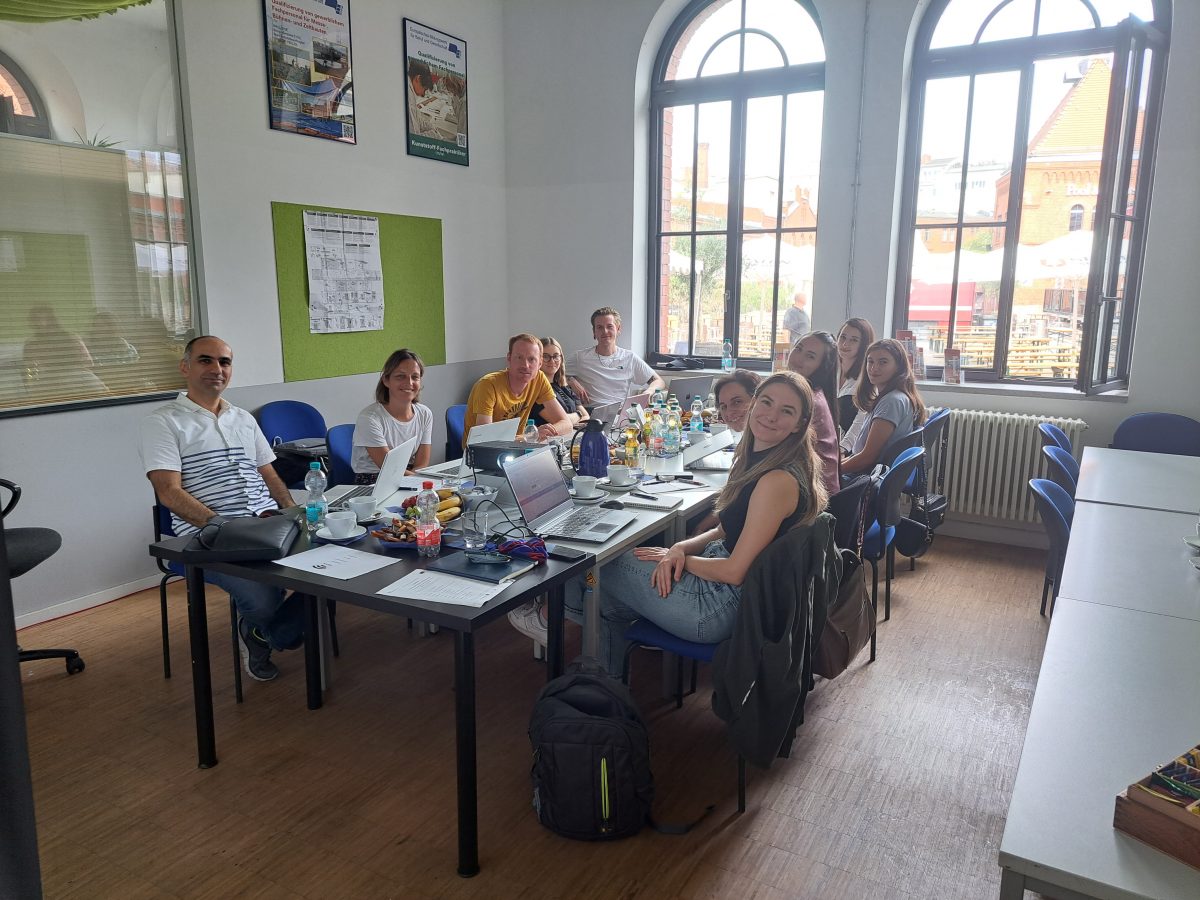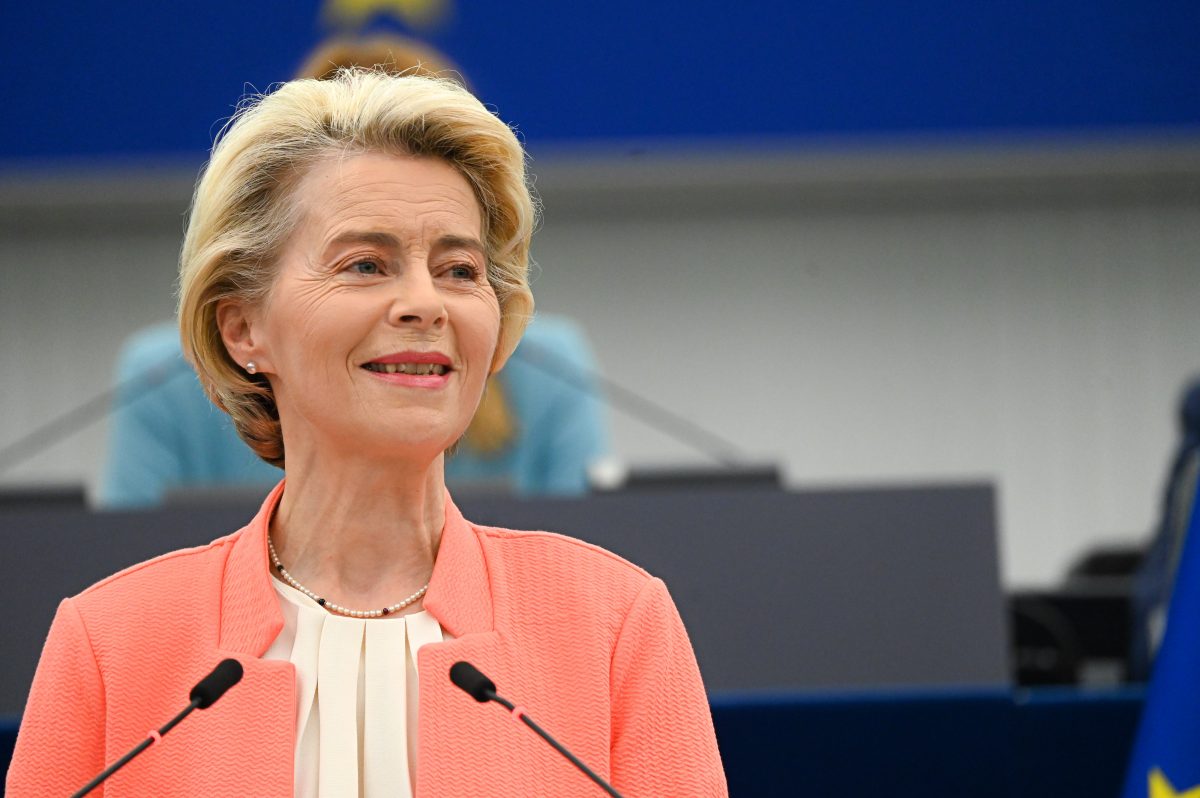- The event served to check the progress made during these last 2 years
- Finnova celebrates the presentation of the online course platform that crystallizes the objectives of the project
26/09/2023, Brussels. The final meeting of the transnational project DESTINE was held in Berlin on Monday 18 and Tuesday 19 September. The Erasmus + DESTINE (DivErSity and Tolerance IN E-Environment) project aims to promote online vocational training that ensures support for diversity, inclusion and tolerance by providing the necessary tools for all professionals and students to adapt to the e-learning methodology. DESTINE focuses especially on those vocational training students who need a learning environment adapted to their needs.
The meeting allowed all the partners, including the Finnova Foundation, to discuss the results obtained during the project and the progress it has made in its two years of existence. Throughout the two days, the partners presented the progress made in the project, with the presentation of the online courses as the main highlight. They also updated the contributions they have made to the project and the objectives they intend to achieve at the end of the project, as DESTINE will close on November 1 after two years of activity.
The launch of the online platform was the main event of the day, a platform that crystallizes the objectives of DESTINE. Destine MOOC (Massive Open Online Course) is the name of the platform on which online courses and educational materials are delivered and made accessible to everyone. Destine MOOC contains video resources, reading material, assessments, quizzes and a discussion forum that make up the 7 modules into which the platform is divided.

The project aims to equip all professionals and students with the essential tools to effectively adapt to an e-learning approach. DESTINE specifically prioritizes the creation of a learning environment that is adapted to the needs of vocational training students.
In line with the project’s objectives, the platform contains material focused on methods for fostering tolerance and diversity in virtual spaces. The DESTINE project aims to address the challenge of raising the issues of inclusion, diversity and tolerance in the online and distance learning environment. In addition, DESTINE also targets vocational students, and in particular students with fewer opportunities, who need a diversity-friendly learning environment.
Finnova Foundation, as an entity committed to innovation, inclusion and diversity, celebrates the presentaion of the online courses platform that will allow to meet the objectives on which this project has pivoted. The work of Finnova and all the partners has allowed this project to achieve its goals, and the final meeting has allowed the partners to share their experiences in the project in situ. Finnova is a partner in this project together with Osengo (France), AKMI (Greece), BK CON (Germany), Centrul Pentru Promovarea Invatarii Permanente – CPIP (Romania), Symplexis (Greece) and Future in Perspective (Ireland), with a budget of €284,697.
About ERASMUS+
Erasmus+ 2021-2027 is the European Union’s renewed program in the fields of education and training, youth and sport, offering opportunities for all people and in all educational sectors (School Education, Vocational Education, Higher Education and Adult Education). This new Erasmus+ is more international, more inclusive, more digital and greener, supporting digital transformation, inclusion and diversity, as well as the environment and the fight against climate change. With a budget of over €28 billion, it will fund learning-related mobility and cross-border cooperation projects for 10 million people of all ages and backgrounds. “This project has been funded with the support of the European Commission. This publication reflects the views only of the author, and the Commission cannot be held responsible for any use which may be made of the information contained therein.”
About DESTINE
The Erasmus + DESTINE project (DivErSity and Tolerance IN E-Environment) was created with the aim of promoting an online professional training online vocational training that ensures support for diversity, inclusion, and tolerance, providing the necessary tools for all professionals and students to adapt to the e-learning methodology. students to adapt to the e-learning methodology. DESTINE focuses especially on those vocational students who need a learning environment adapted to their needs. learning environment adapted to their needs.
About FINNOVA
Finnova is the Spanish-Belgian non-profit foundation based in Brussels and Spain, working for the promotion and development of innovation and entrepreneurship in the EU. Finnova’s experience in leading communication and dissemination activities of European projects is combined with a solid proven track record in business creation and entrepreneurship support programs, such as accelerators, incubators and events, as well as its commitment to training and employability of young people.


